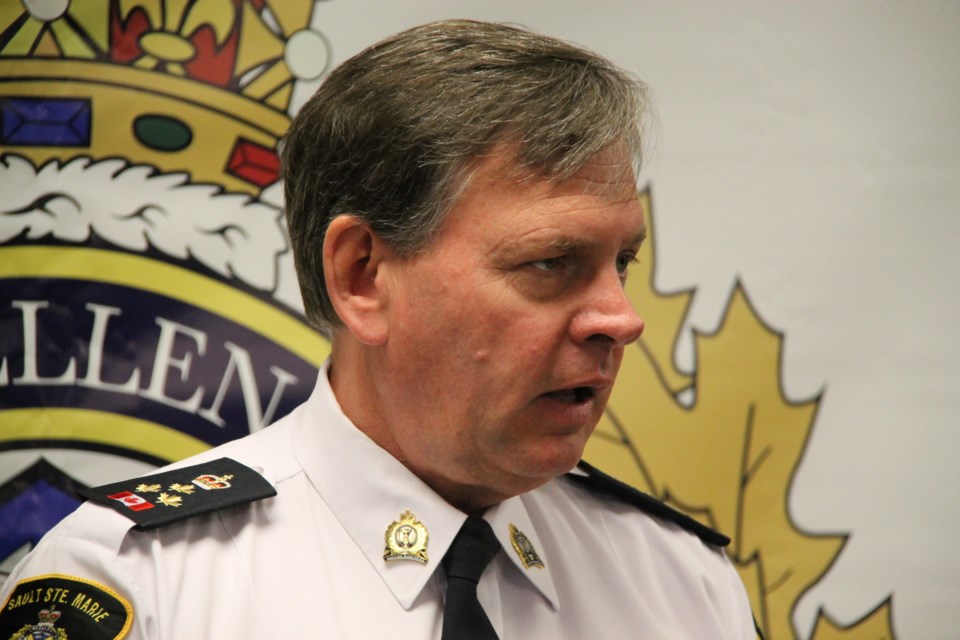New regulations aimed at southern Ontario's carding issue could deter local officers from doing 'good policing' says the city's police chief.
The new rules, under the Ontario Police Services Act, are meant to address concerns that racial minorities are unfairly targeted by police by demanding a new approach from police when they interact and collect information from people stopped in street checks.
Robert Keetch, Sault Ste. Marie Police Service chief, says he is concerned the new regulations impose considerable training and paperwork on police services right across Ontario as a result of policing problems that stem largely from the Greater Toronto Area.
Keetch said the new regulations also appear to conflict with the community policing model, in which Sault Police have been attempting to put a greater focus on engaging with people in a cordial, helpful manner in the course of their duties.
“The issue of racial profiling or ‘carding’ within our community is a non-issue, so from my perspective we’re taking valuable training time and allocating it to an issue that isn’t as significant in Sault Ste. Marie as it would be in Toronto, Mississauga, Durham or Peel,” Keetch told SooToday.
“My perspective is it’s not a Northern Ontario issue, it’s not an issue that we see as prevalent in our community.”
“Historically, if I went back over several years and did an analysis (of Sault Police street check records)…I would suggest there were very few (‘carding’ incidents in Sault Ste. Marie),” Keetch said.
Police must, under the new regulations, inform people why they are being stopped and questioned.
The regulations also direct police to provide citizens their name, badge number, and a contact at the Office of the Independent Police Review Director if they have concerns about being stopped by an officer.
Officers also may not randomly stop and interact with a person if he or she happens to be in a high-crime district.
Keetch questioned the logic of that last point.
“If we’re in a high-crime area at two o’clock in the morning and we see two individuals who appear to be suspicious, from our perspective it’s only good policing to stop and have a conversation with those individuals.”
“Now, there’s the requirement to identify yourself as a police officer, inform them they don’t have to speak with you, and if they do interact with you, you must provide them with a written record of that interaction.”
“All of that is time-consuming and onerous on the police officer, and from a policing perspective we’re concerned officers potentially will not interact with these individuals and will choose, rather than to stop and have a conversation with them, to drive on to avoid the requirements associated with the legislation.”
The Ministry of Community Safety and Correctional Services has stated effective January 1, 2017, local police service boards and police chiefs throughout Ontario must have new street check policies in place.
Police officers involved in collecting information from citizens in street checks must complete training under the new regulations by the New Year.
Two Sault Police officers will be sent to Sudbury at the end of September for eight hours of training on the new regulations, then will train other Sault Police officers upon their return.
Police will be required to set up a system to record the number of street checks as described in the regulations and report them annually to the Police Services Board and the provincial government.
All of which, Keetch reiterated, is an unnecessary burden to policing in the Sault.
“We’re being tasked to develop a system and do an onerous amount of training associated with an issue that is not applicable to our community,” Keetch said.
